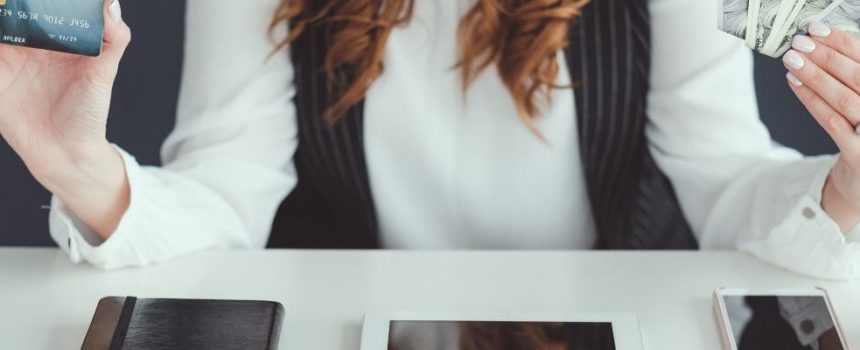The world keeps getting smaller as technology continues to shrink barriers to conducting business internationally. Financial technology—or fintech for short—is making it easier and simpler to do everything from making bank deposits on your cell phone from anywhere in the world to getting the latest currency conversion rates via an app.
Sales are increasingly made on a global stage. Worldwide, about 25% of goods produced are exported, and the U.S. exported $2.21 trillion in goods and services in 2020.
Banking on the Go
Whether you’re at your desk in DesMoines or jetting off to Denmark, nearly everything that was once done at a brick and mortar bank can be accomplished on your laptop or phone. While direct deposits are becoming more common, banks have also made it easier to deposit paper checks through their apps by taking a photo of your checks.
In a survey conducted by Business Insider, 89% of respondents, including 97% of millennials, said they use mobile banking. Older consumers have also embraced mobile banking, with 91% of Gen Xers and 79% of Baby Boomers saying they see the benefits of banking apps. The top five banks with mobile apps, according to survey respondents are Citibank, Wells Fargo, USAA, Navy Federal Credit Union and Bank of America.
Like apps, mobile wallets are also becoming more popular. Users can make purchases directly with their smartphones when they are linked with debit or credit cards. Credit unions are seeing an annual increase in mobile wallet adoption by 56%, while mobile transactions are growing by 53% each year, according to Business Insider.
The Rise of AI
Artificial intelligence is continuing to transform how people interact with banks. While the rise of online savings accounts means many bank teller jobs are becoming obsolete, AI is now replacing many points of human contact in customer service. Chatbots with cute names like Ally Assist from Ally Bank, Eno from Capital One and Erica from Bank of America allow customers to speak or text tasks that need to be done, from making payments and transfers to getting FICO score updates. Many of the virtual assistants are programmed to learn from customers so that they can anticipate needs and recommend solutions. Business Insider research showed that 18 million U.S. customers made a payment by voice by 2020 and predicted this number will quadruple by 2022.
Non-bank-owned virtual assistants like Apple’s Siri and Amazon’s Alexa let users make transfers to other consumers through programs like Venmo. Alexa can even pay off Capital One credit card bills.
AI is also changing the way businesses process money on the way to or from a bank. For example, there are now invoicing systems that can sort how invoices should be handled and recommend ones that will need a human to review them. Also, when procuring materials for sale, AI can check credit scores and tax information, as well as analyze large numbers of supplies and help make purchasing decisions with the use of big data.
As you experience banking AI, think about how it can help in the sales arena, perhaps cutting down on mundane, time-consuming tasks as chasing down sales leads. You can take advantage of machine learning to find patterns that will predict when a customer will reorder or anticipate their upcoming needs.
Keeping Your Money Safe
All of these advances have the potential to streamline banking for users around the world. But with increased global interconnectivity comes greater risk of fraud and cybercrime. The first huge banking data breach occurred in 2014 in which information from more than 76 million households and 7 million small businesses was hacked. A massive data breach of information of more than 100 million of Capital One’s credit card customers and applications occurred in 2019.
While traveling, don’t take advantage of free WiFi at airports or restaurants if you will be accessing or using financial information, as scammers can also easily access these networks to worm their way into your phone, stealing passwords to banks and other sensitive information. Even those handy airport charging stations can be dangerous if a hacker has compromised them with malware. If you use the cables provided at the station, the malware can be transmitted to your phone to access data.
You should also ensure that your phone is secure via a few easy steps. First, use a password or fingerprint or facial identification to ensure you are the only one who can unlock your phone. Enable touch ID for banking and credit card apps so they can’t be accessed by others.
Remember to download apps from trusted sources, and make sure you stay on top of those phone updates; many contain fixes for possible security issues. Be aware of social engineering attacks as well since scammers can make it seem like you’re inputting information on a reputable site. Double-check you’re on the right URL before giving any sensitive usernames and passwords to prevent yourself from falling victim to these scams. And don’t forget to log out of a banking system once you’re done.
Advances in fintech mean that you can keep up with banking for your businesses wherever you are in the world, whether you’re in your home time zone or one where the night is now a day for you. And messages from AI virtual assistants can warn you of potential security dangers or fraud, while at the same time answering even complicated questions about banking offerings.
At the same time as fintech makes financial life easier, it can also mean your financial data is at risk. Staying vigilant in securing your apps and devices can go a long way to keeping your money and personal information safe.











Comments (6)
wow interesting write up
What a great presentation!
GREAT
Wow awesome
cool write up
wonderful